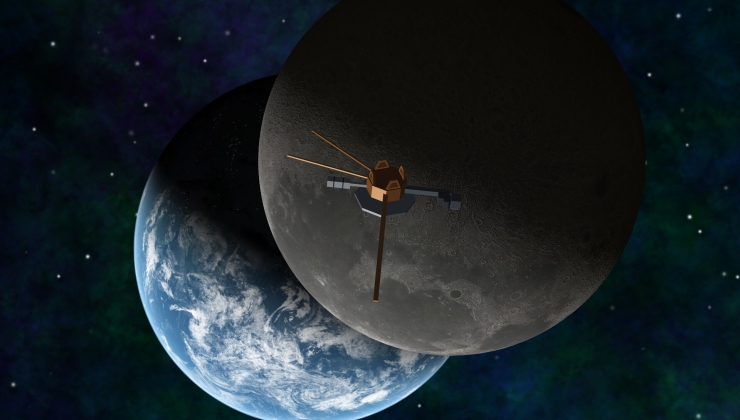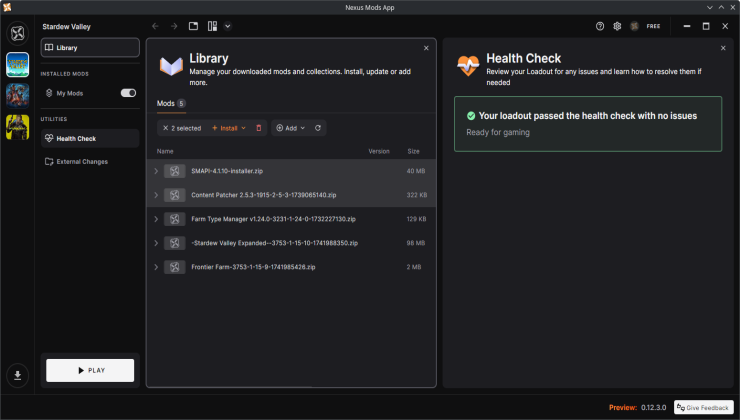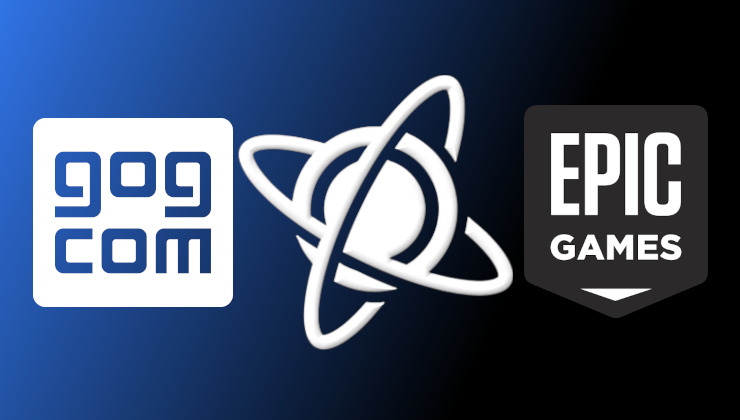Update: Canonical are now saying 32bit libraries will be "frozen" and not entirely dropped.
Original article:
Things are starting to get messy, after Canonical announced the end of 32bit support from Ubuntu 19.10 onwards, Valve have now responded.
Speaking on Twitter, Valve dev Pierre-Loup Griffais said:
Ubuntu 19.10 and future releases will not be officially supported by Steam or recommended to our users. We will evaluate ways to minimize breakage for existing users, but will also switch our focus to a different distribution, currently TBD.
I'm starting to think we might see a sharp U-turn from Canonical, as this is something that would hit them quite hard. Either way, the damage has been done.
I can't say I am surprised by Valve's response here. Canonical pretty clearly didn't think it through enough on how it would affect the desktop. It certainly seems like Canonical also didn't speak to enough developers first.
Perhaps this will give Valve a renewed focus on SteamOS? Interestingly, Valve are now funding some work on KWin (part of KDE).
Looks like I shall be distro hopping very soon…
To journalists from other websites reading: This does not mean the end of Linux support, Ubuntu is just one distribution.
SteamOS being Debian-based, recommending Debian or Mint/Debian would make a lot of sense. But it is true that Debian is not for beginners.
Valve can contribute some resources to make Debian more user friendly. KDE in Debian can surely benefit from more maintainers.
vorlon
June 23
I’m sorry that we’ve given anyone the impression that we are “dropping support for i386 applications”. That’s simply not the case. What we are dropping is updates to the i386 libraries, which will be frozen at the 18.04 LTS versions. But there is every intention to ensure that there is a clear story for how i386 applications (including games) can be run on versions of Ubuntu later than 19.10.
Last edited by Shmerl on 23 Jun 2019 at 3:24 am UTC
I would even pay for it if everything works well.
I'd happily sign up to that, $10/month for a Valve developed Linux OS which provides the best possible gaming experience for Linux? Hell yes, give me that.
Kinda off-topic but I'm somewhat terrified that the idea of a 'subscription model' OS comes so naturally to people nowadays.
Why not? It's no different to using Linux Mint and donating per month to the Linux Mint team via the development fund, or patreon. Developing an OS costs resources, usually money, and those costs occur every month, not just the month you buy the OS. If you sell an OS as a product with a one off fee, then the company who makes it is just required to keep putting out new versions and selling those too, otherwise they have no revenue.
I'm not talking about $10/month as some kind of massive money making scheme for Valve. I would be very surprised if they would make even a profit off that, but the $10/month should be viewed just as a contribution to their efforts and to ensure they have at least some incentive to always keep going with the OS.
Part of the problem with Ubuntu, is that Canonical makes basically $0 from any of us. We don't buy anything from them, we don't pay them for their services, we don't donate, nothing. They have zero reason to care if they break support for games because they don't make any money from gaming. Just paying $10/month to a company for them to develop an OS, could at least help us establish a relationship with that company, where we can expect regular fast updates, proper support, polished UX, etc.
I'm happy to pay for high quality software, foss or not. A high quality Linux OS with great support would be worth paying for.
I would even pay for it if everything works well.
I'd happily sign up to that, $10/month for a Valve developed Linux OS which provides the best possible gaming experience for Linux? Hell yes, give me that.
Kinda off-topic but I'm somewhat terrified that the idea of a 'subscription model' OS comes so naturally to people nowadays.
Why not?
[...]
I'm happy to pay for high quality software, foss or not. A high quality Linux OS with great support would be worth paying for.
This is a very healthy attitude and the only way to go forward. I have been donating to Canonical (and other OSS software I use regularly) over the years myself, however Linux community at large (i.e. not just Linux gamers) tends to despise commercial, for-profit software even when it is open source. High quality commercial Linux OS with a paid support will look too much as Windows + WSL2 to a lot of folks. Canonical itself was and is not liked much.
Lack of monetary feedback (or clarity about that feedback) for the desktop Linux is in my opinion the reason why its (desktop) market share is so tiny. But at the same time, a commercial distro from your example would be fighting an uphill battle. After all, people are attracted to Linux because a) it's free as in freedom and b) it's free as in free beer. Commercial distro designed for gaming would by definition incorporate closed source software so it would be neither, and as such it would have a much harder time attracting users.
Commercial distro designed for gaming would by definition incorporate closed source software so it would be neither, and as such it would have a much harder time attracting users.
Linux users won't appreciate a distro, that pushes for blobs (besides games themselves).
If they can get KDE on the development side, I think Plagman would be a happy camper for rebasing SteamOS on this.
https://www.youtube.com/watch?time_continue=1&v=VxA-vim715w
I'd rather them work on Plasma Console or Plasma Gaming version. Making an open gaming UI would be better than any closed one.
Commercial distro designed for gaming would by definition incorporate closed source software so it would be neither, and as such it would have a much harder time attracting users.
Linux users won't appreciate a distro, that pushes for blobs (besides games themselves).
I meant games, it's enough for the point I was making (neither free as in freedom nor free as in free beer). Linux gamers are obviously Okay with this, but Linux community at large not always is, so a proposed commercial distro would be a tough sell. Still, I personally would support it.
Commercial distro designed for gaming would by definition incorporate closed source software so it would be neither, and as such it would have a much harder time attracting users.
Linux users won't appreciate a distro, that pushes for blobs (besides games themselves).
and this is also a lil off-topic, but let me clarify the position to those who said they're ok with paying devs: loving foss software != hating free markets, devs being paid, etc. that's actually a destructive falsehood.
i don't see how a subscription can work in open source apart from subscribing to devs as opposed to the software, which we fully support and is the current situation we have, and why i said he can pay for any project he likes and influence the direction. and i'd not expect the merits of open source (for both consumers and developers) need explaining to users on a gamingonlinux forum Owo either way i won't do it here.
as for a closed-source gaming os? ... i hear windows is wonderfully optimized for gaming..? xP but it's not subscription yet
Edit: i do think some popular distros could get far by adding feature votes, bounties, etc, on a very visible and linked-to page in a pretty and easy-to-access way for normies. it's a marketing/management thing.
Last edited by doomiebaby on 23 Jun 2019 at 4:59 am UTC
I meant games, it's enough for the point I was making (neither free as in freedom nor free as in free beer). Linux gamers are obviously Okay with this, but Linux community at large not always is, so a proposed commercial distro would be a tough sell. Still, I personally would support it.
Games aren't distributed as part of the distro, so distro shouldn't really matter. Same as today, you can play games using any distro you want.
Games aren't distributed as part of the distro, so distro shouldn't really matter. Same as today, you can play games using any distro you want.
This was in context of a gaming-oriented paid distro a la SteamOS proposed by someone earlier.
vorlon
June 23
I’m sorry that we’ve given anyone the impression that we are “dropping support for i386 applications”. That’s simply not the case. What we are dropping is updates to the i386 libraries, which will be frozen at the 18.04 LTS versions. But there is every intention to ensure that there is a clear story for how i386 applications (including games) can be run on versions of Ubuntu later than 19.10.
For anyone looking for context:
You can find the original post by "vorlon" [here](https://discourse.ubuntu.com/t/i386-architecture-will-be-dropped-starting-with-eoan-ubuntu-19-10/11263/84).
"vorlon" appears to be Steve Langasek's account on discourse.ubuntu.com
Steve Langasek is one of the [correspondents](https://lists.ubuntu.com/archives/ubuntu-devel/2018-May/040348.html?_ga=2.115814022.1002708332.1561245401-707443571.1561245401) on the [mail thread](https://lists.ubuntu.com/archives/ubuntu-devel/2018-May/040310.html) for proposing to drop i386.
Games aren't distributed as part of the distro, so distro shouldn't really matter. Same as today, you can play games using any distro you want.
This was in context of a gaming-oriented paid distro a la SteamOS proposed by someone earlier.
I think gaming oriented should be focused on UI, DE, compositor and all working well with gaming scenarios. Such as modern Wayland compositor supporting adaptive sync and so on. Open implementation of VR, and etc. All that can be open source. Whether you pay developers to work on it, depends on how they set it up. Patreon is a good option. So games themselves don't really prevent gaming oriented support of the distro from being fully open.
Personally, when it comes to distros and projects, I'd pay for open source development. Not for closed one.
Last edited by Shmerl on 23 Jun 2019 at 5:26 am UTC
I really wish more game developers would open source their code, they can still keep the assets proprietary and sell them. But at least we wouldn't have the need to keep binary compatibility forever. If there was still enough interest in an old game, some people would surely help to fix the code to make it run on 64-bit.
Hell no! I never ever will back to run Windows for my own PC.
IMO, yes we certainly needs to move on to 64 bit architecture. But not by removing 32 bit support altogether! Especially on FOSS world which known for giving user freedom.
Also, it may tainting the whole Linux reputation on giving to all anything computer devices a rejuvinate 'second' live beyond it's EOL usage. No thanks to Canonical being Canonical, again.
I hate Linux/FOSS world 'soap opera' gets another 'reboot', again. But I agree Canonical should stop being Apple of Linux world.
p/s: Oh BTW, where's my Linux phones Canonical?!
The argument that developers should offer games as Snaps or bundle all 32-bit dependencies with the executable isn't going to fly in the real world. For one thing, game engines can have hidden 32-bit dependencies that are not obvious to developers. And very few game developers will be willing to update their entire back catalogue just to make things work on Ubuntu. Plus it is unlikely that developers will choose to distribute their work as Snaps as this package format is not yet widely accepted as the default.
Meanwhile, the suggestion that Ubuntu should freeze the 32-bit libraries at their current versions is irresponsible. It means that security bugs in these libraries will never get patched, even if the upstream maintainers release patches.
I am heartened by the fact that a number of Ubuntu derivatives such as Mint and Pop_OS! have indicated that they will continue to offer 32-bit support in some form. Has anybody heard from Elementary or KDE Neon yet?
I feel that this decision will do immense harm to the Ubuntu brand in the community. While it has been under the discussion for some time, the announcement of a final decision only three months out from the release 19.10 is a public relations disaster. This is the kind of decision that requires a communication plan and long lead times. It breaks a large amount of software, including hardware drivers only offered in 32-bit builds. It's easy to point out that hardware manufacturers should be offering 64-bit driver build, but the truth is that many companies only grudgingly support Linux in the first place. And in the gaming area, it is unlikely that publishing houses will change their release strategies just to accomodate this move.
It might be time to look at putting Manjaro on my main desktop computer if none of the Ubuntu derivatives can implement a workaround...
Steam is already 64bit on macOS, and has been since last year.And? How does this negate the fact that 32-bit games won't run? Double standard.
I am heartened by the fact that a number of Ubuntu derivatives such as Mint and Pop_OS! have indicated that they will continue to offer 32-bit support in some form. Has anybody heard from Elementary or KDE Neon yet?
I guess then Pop_OS will be a good Distro for beginners?











 How to play games from GOG and Epic Games on Linux, SteamOS and Steam Deck
How to play games from GOG and Epic Games on Linux, SteamOS and Steam Deck How to get Battlefield 3 and Battlefield 4 online working on Linux, SteamOS, Steam Deck
How to get Battlefield 3 and Battlefield 4 online working on Linux, SteamOS, Steam Deck